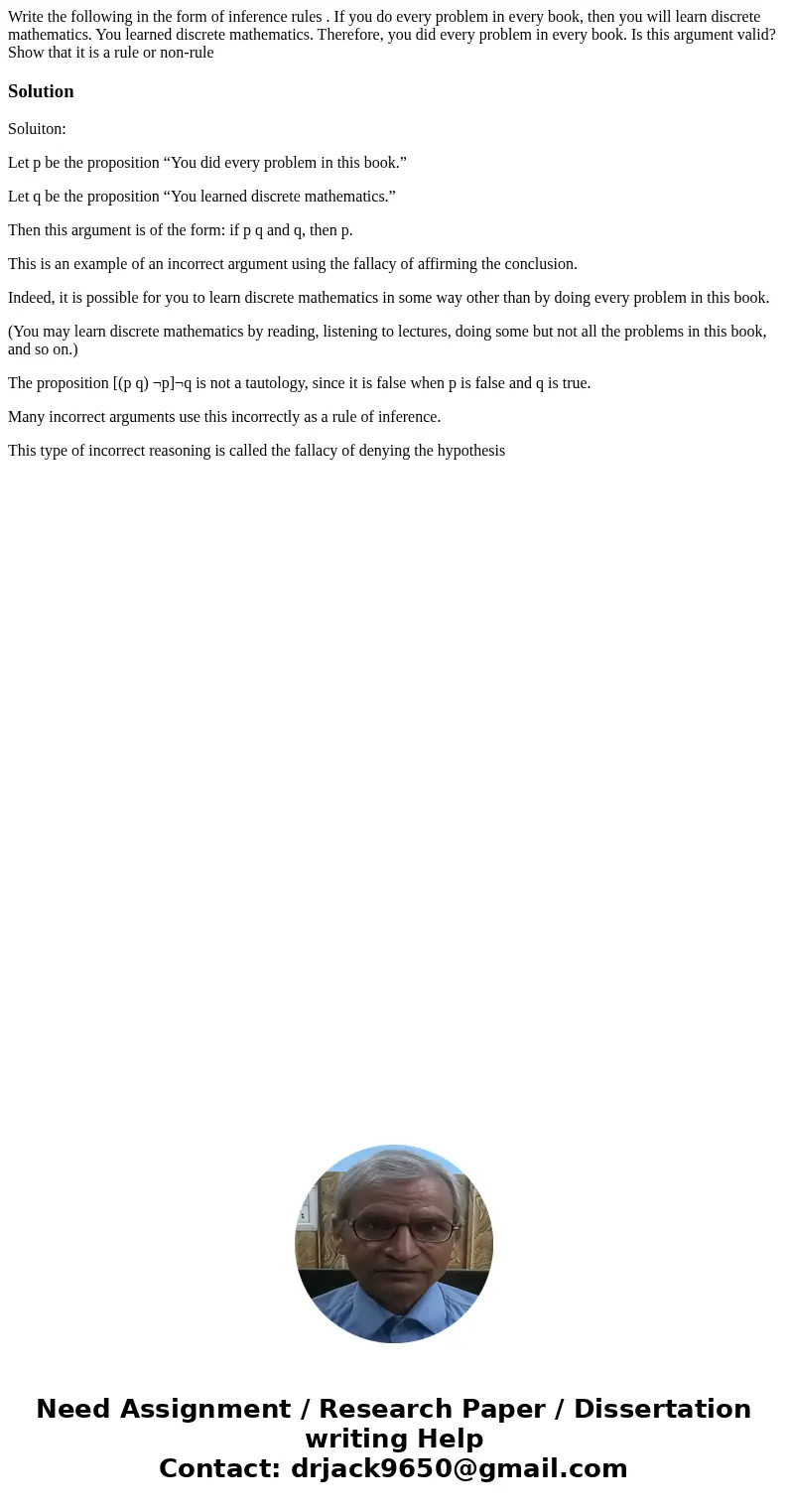Write the following in the form of inference rules If you d
Write the following in the form of inference rules . If you do every problem in every book, then you will learn discrete mathematics. You learned discrete mathematics. Therefore, you did every problem in every book. Is this argument valid? Show that it is a rule or non-rule
Solution
Soluiton:
Let p be the proposition “You did every problem in this book.”
Let q be the proposition “You learned discrete mathematics.”
Then this argument is of the form: if p q and q, then p.
This is an example of an incorrect argument using the fallacy of affirming the conclusion.
Indeed, it is possible for you to learn discrete mathematics in some way other than by doing every problem in this book.
(You may learn discrete mathematics by reading, listening to lectures, doing some but not all the problems in this book, and so on.)
The proposition [(p q) ¬p]¬q is not a tautology, since it is false when p is false and q is true.
Many incorrect arguments use this incorrectly as a rule of inference.
This type of incorrect reasoning is called the fallacy of denying the hypothesis

 Homework Sourse
Homework Sourse